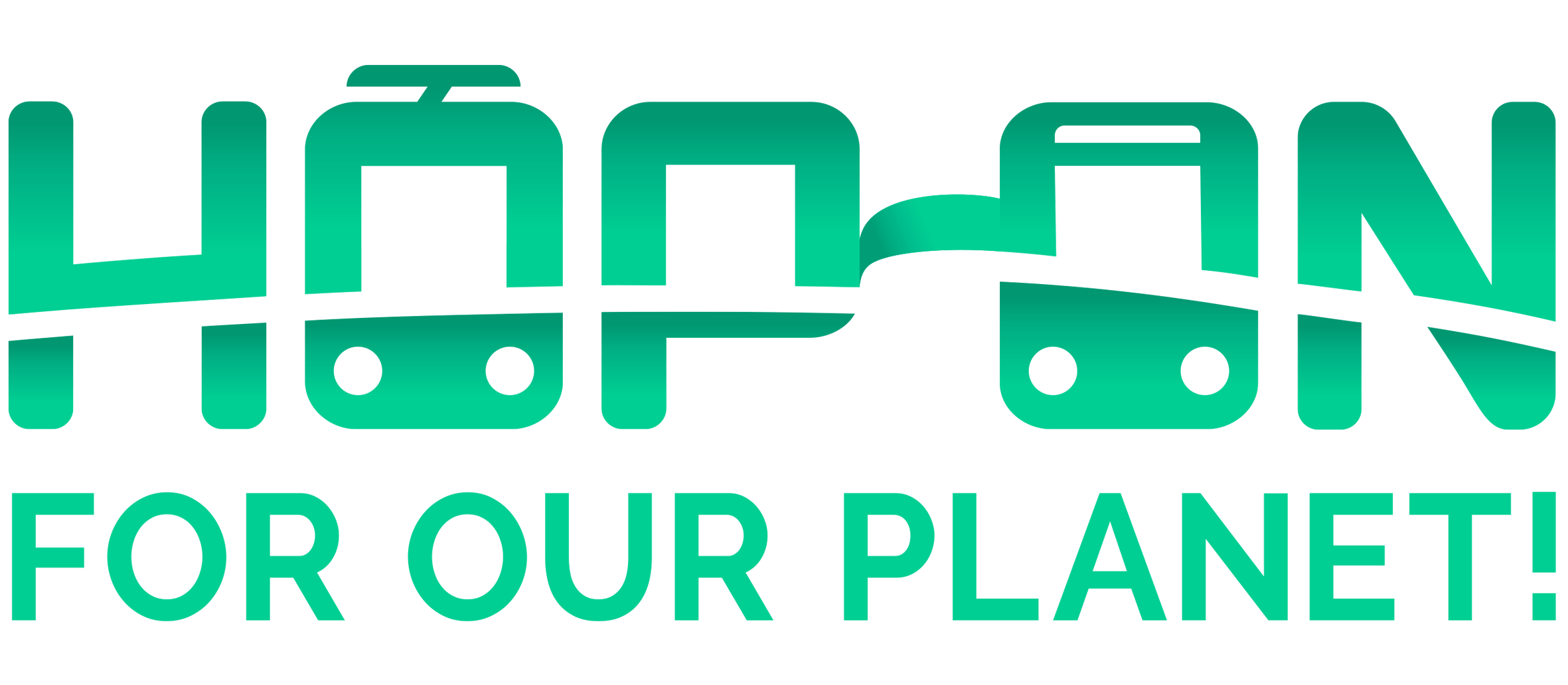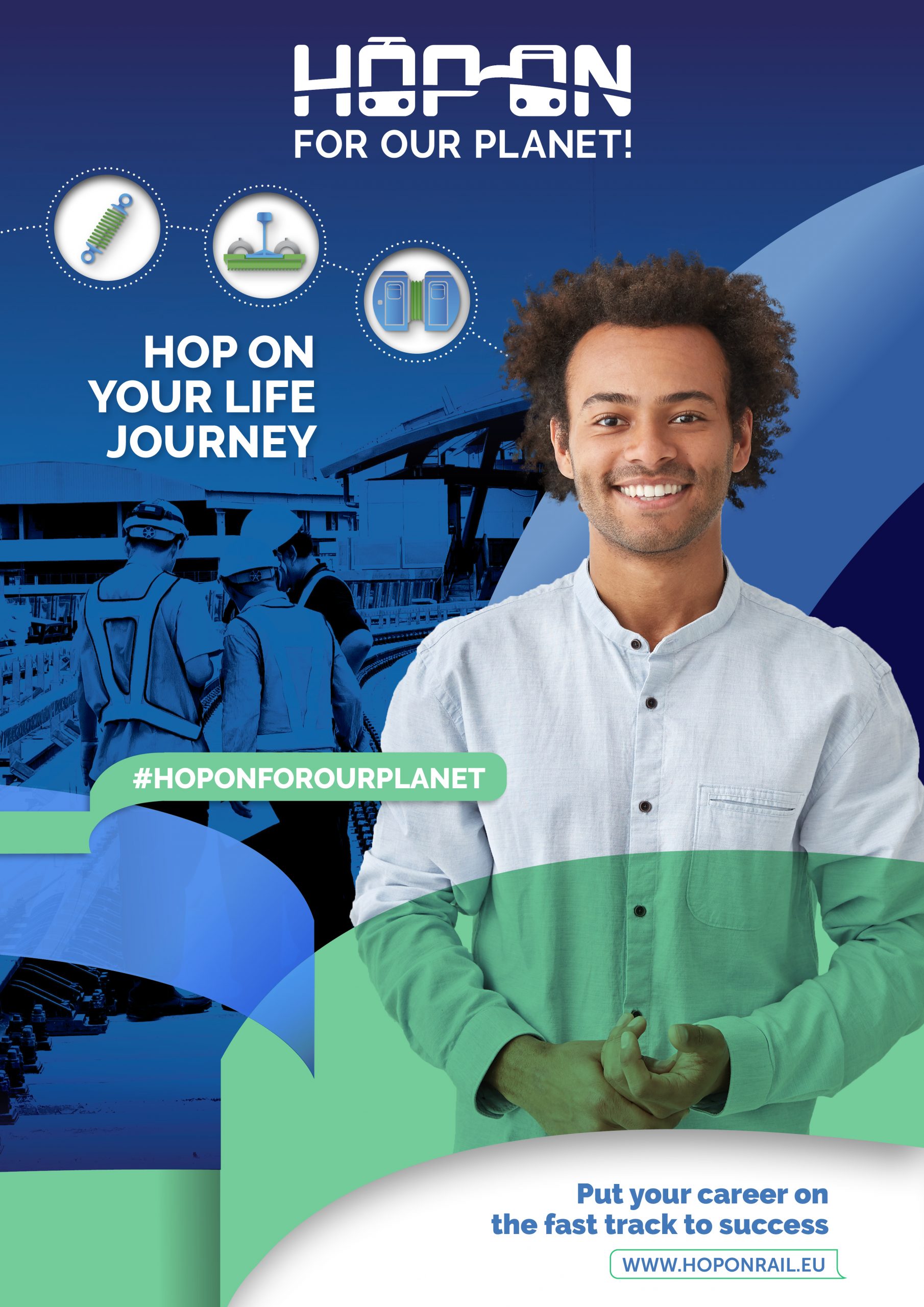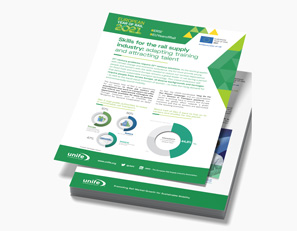Interactive Factsheet
Skills for the rail supply industry
21st century problems require 22nd century solutions. As the world grapples with climate change and economic turbulence, the EU must provide young people and workers with the skills needed to reduce our societal dependence on fossil fuels and ensure Europe remains a global leader in rail during a period that demands sustainable transport technology. This critical endeavour will require people from across Europe, of diverse backgrounds and heritages – as well as the equal inclusion of women – to meet the rising demand for environmentally-sound mobility.
The European Year of Rail is an opportunity for our sector to show job seekers the possibilities that work in transport can offer and inform our experienced colleagues of the opportunities available for them to pursue. Through initiatives such as STAFFER, the “Blueprint for Sectoral Cooperation on Skills” for Rail, the UNIFE-coordinated “Hop-On For Our Planet” campaign, and our participation in the Women in Transport platform, our sector is working hard to ensure that Europe drives the global effort towards a green transition and that its workers are well-suited to the resulting economy.
Gen Z urges public authorities to invest in sustainable rail transport.
%
Provide
more attractive incentives
to the public to ride rail
%
Reduce
tax on rail transport
%
Invest in
more infrastructure
& services
About half of Gen Z want to hop on to careers and studies for the planet.
%
Interested in
a sustainability-related field
STAFFER: creating long-term educational and training opportunities

“The ageing of population combined with the lack of technical skills might thus become a bottleneck in maintaining the competitive position of the European rail supply industry over the long term”.
The 2019 European Commission Study on the competitiveness of the Rail Supply Industry identified the “promotion of the development of skills and safeguard of access to skilled labour” as one of the main action fields for maintaining ensuring Europe’s rail supply industry’s leadership. According to this study, “the supply of technical engineers may become a bottleneck in maintaining the competitive position of the EU rail supply industry”. It even states that “combined with a decreasing workforce due to ageing, perception of an unattractive sector, and changing skill requirements due to the digital transformation, it is expected that this skills shortage could increase in the near future”. These mounting challenges necessitate action without further delay.
The skills challenge was also extensively tackled within the Final Report of the EC Expert Group on the Competitiveness of the EU Rail Supply Industry, adopted in October 2019. This Report confirms that “in view of the ageing population, a significant cohort of employees is expected to retire within the coming years. At the same time, transformation related to digital and high-tech technologies creates mismatches between available and demanded skills. Already now, enterprises in many Member States are reporting difficulties to find railway engineers”.
Finally, it points out that “the digital transformation of the supply industry will have a strong impact on production, processes and skills needed in the rail supply industry. In terms of skill changes, virtually all the job categories show an increase in the need for more information and communication technology (ICT) and (broad) technical skills”.
Therefore, in 2019, at the request of UNIFE and following these discussions held within the EC Expert Group on the Competitiveness of the EU Rail Supply Industry, the Commission shortlisted the rail industry as 1 of 6 sectors eligible for the creation of an Erasmus+ Blueprint for Sectoral Cooperation on Skills.
Coordinated by the University of Genoa (in cc), the project officially started on 1 November and will last for 4 years. Its objective is to help identify the main existing skill gaps and assess the future needs in our industry, Vocational & Education Training (VET) institutions and technical universities to propose adaptations to curricula, training and educational programmes so as to address new technological developments and trends.
HOP ON FOR OUR PLANET: Europe’s green future on the fast-track with rail


Do Gen Z – aged 16 to 25 – in Europe want to ride rail because of its green credentials? Are they interested, especially women, in the numerous green and technology jobs that the rail industry has to offer? How do they want lawmakers to integrate rail transport into the EU Green Deal?
These and many more questions are answered by a Europe-wide survey supported by the HOP ON FOR OUR PLANET campaign, the European rail supply industry’s initiative to get Europe’s green future on the fast-track with rail.
The big take away? Gen Z wants to HOP ON to academic tracks and careers for the planet. And the rail supply industry is ready to welcome them to the crew!
The majority of Gen Z are willing to hop on to greener transport for the planet.
Those most willing to change their transportation habits to practice sustainability, include Gen Z who:
Have a
STEM background
Are concerned about
climate change
Regularly
ride rail
Follow climate change
related profiles on social media
Gen Z believes zero-emission technology is the innovation future for rail.
Those most willing to change their transportation habits to practice sustainability, include Gen Z who:
- 51.6%
- 38.5%
- 36.3%
- 33.7%
- 28.7%
Female Gen Z’ers in STEM value sustainable employers even more than men
Breakdown based on background and gender.
%
of women think a positive impact on society would attract them to a career in rail
%
of women think a company with strong purpose and values would attract them to a career in rail
%
of men think a positive impact on society would attract them to a career in rail
%
of men think a company with strong purpose and values would attract them to a career in rail
“Hop On for Our Planet was launched at a moment when the European Union is beginning to appreciate the rail sector’s potential contribution to its wider Green Deal goals.”
Hop On for Our Planet is an important opportunity for the rail supply industry to welcome in a new generation of innovators – both those entering the work force and those looking to use past experiences as they take on new challenges.
Hop On for Our Planet was launched at a moment when the European Union is beginning to appreciate the rail sector’s potential contribution to its wider Green Deal goals. This year, the Commission announced that 2021 would be a celebration of rail’s value in future transport decarbonisation through the “European Year of Rail”.
Hop On for Our Planet is reaching out to young people and seasoned professionals across Europe via social media, seminars, press engagement and more, in support of the European Year of Rail, to share with them the impactful climate action opportunities available to them in the European rail supply sector.
Hop on for Our Planet provides an unprecedented opportunity to recruit new talent and communicate the rewarding possibilities open to those that chose to work alongside the rail supply industry in building systems for a cleaner planet.
